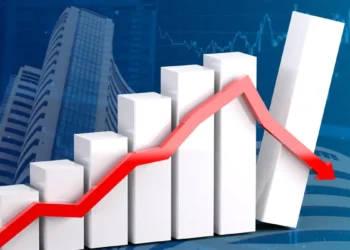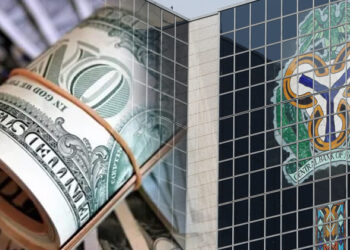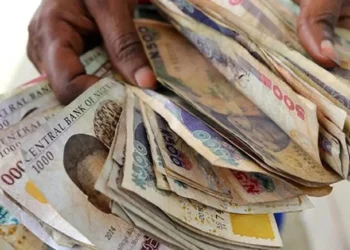International credit rating agency Fitch Ratings has forecasted that the Nigerian currency, the naira, will end the year at 1,450 to the US dollar. This projection was made by Gaimin Nonyane, Director of Sovereigns at Fitch Ratings, during a post-sovereign rating webinar focused on Nigeria and Egypt on Tuesday.
In May, Fitch Ratings upgraded Nigeria’s Long-Term Foreign-Currency Issuer Default Rating outlook from Stable to Positive, affirming the IDR at ‘B-’. This adjustment reflects recent reforms in Nigeria’s foreign exchange market, oil industry, and monetary policy over the past year.
Discussing the naira’s prospects, Nonyane highlighted its current state of “price discovery” since its floating in June 2023. “The naira is still finding its feet and is in a volatile price discovery phase. However, we anticipate some stabilization by Q3 2024 due to expected multilateral donor funding and improved oil receipts,” Nonyane said. Fitch projects the naira to average 1,200 per dollar this year, settling at around 1,450 per dollar by year-end. A gradual depreciation is expected next year, contingent on the continuation of current foreign exchange reforms.
On the possibility of further upgrading Nigeria’s rating, Nonyane pointed to several factors: “A path to a sustainable recovery in the Central Bank of Nigeria’s (CBN) foreign exchange position and a sustained current account surplus, along with reduced inflation and greater foreign exchange stability, could potentially lead to an upgrade. However, a significant increase in domestic non-oil revenue is crucial, as the low tax revenue base currently results in a high interest-to-revenue ratio of 38%, far above the B rating median.”
Fitch Ratings also forecasted a recovery in Nigeria’s oil sector. “We expect the oil sector to recover, supporting the current account in the short term. Increased oil refining capacity, especially as the Dangote refinery ramps up, will help reduce transport costs and lower refined oil imports, easing foreign exchange demand,” Nonyane stated.
Nonyane noted that Nigeria’s gross foreign exchange reserves have decreased from their peak of $34 billion in March to around $32.7 billion, affected by debt repayments and CBN’s foreign exchange interventions. “We project a modest rise in foreign exchange reserves by year-end, driven by recovering oil receipts, multilateral funding, and potential commercial borrowing. This would amount to about 4.2 months of current external payments, aligning with our B-medium rating. However, over 30% of these reserves are from bank swaps, posing an external risk,” Nonyane explained. She emphasized the importance of maintaining foreign exchange momentum, with external debt servicing expected to rise by $4.8 billion in 2024 and $5.2 billion in 2025.
In terms of multilateral funding, Finance Minister Wale Edun announced on Channels Television’s “Sunday Politics” that the World Bank is set to approve a $2.25 billion package for Nigeria in the coming weeks. “The World Bank board will consider a $2.25 billion package for Nigeria, including $1.5 billion in Development Policy Operation funding, recognizing efforts to stabilize and grow the Nigerian economy,” Edun said. He expressed confidence in Nigeria’s ability to leverage multilateral development banks for economic recovery.











